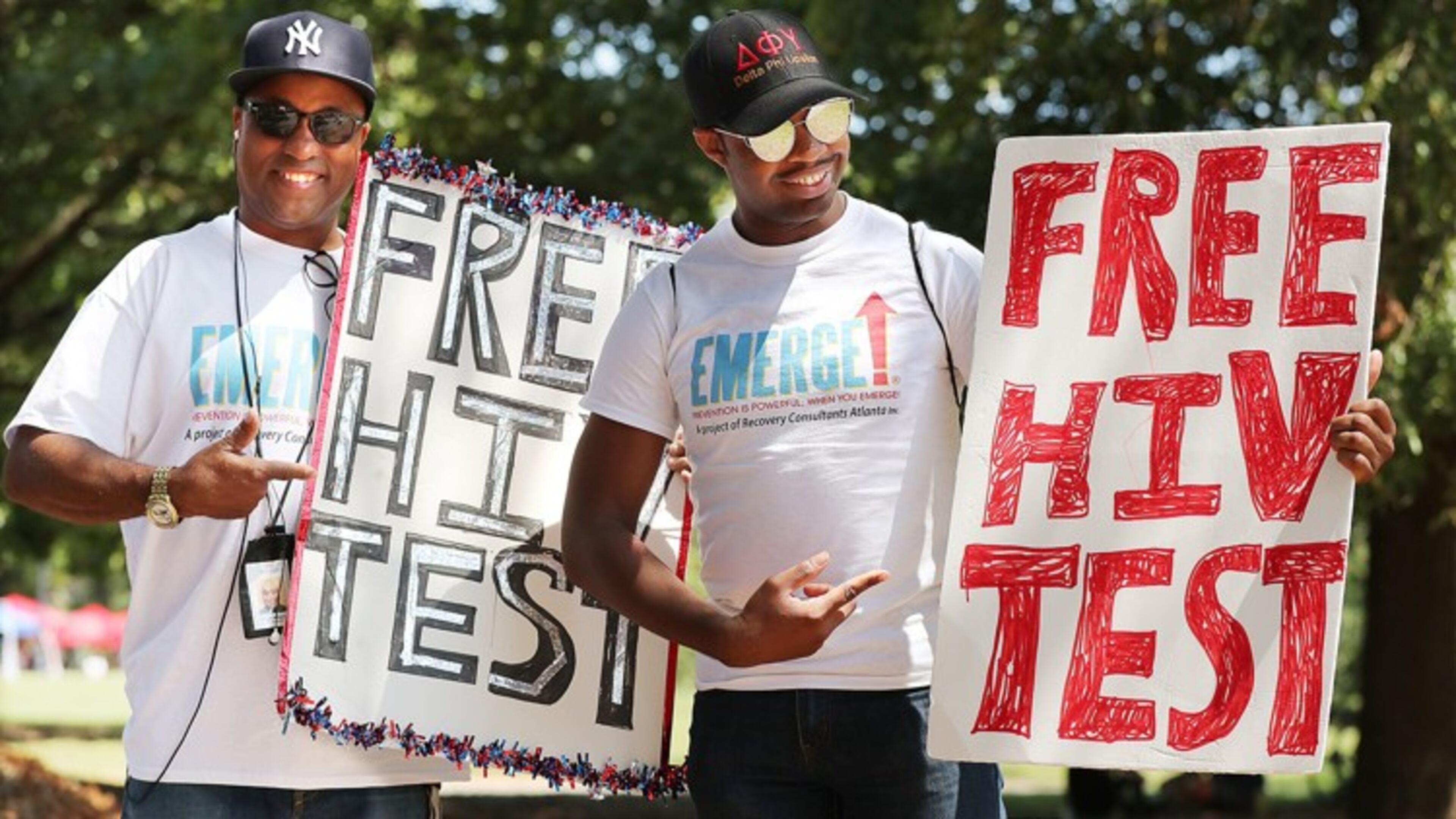HIV activists react to Trump’s promise to eradicate the epidemic

President Donald Trump’s State of the Union speech Tuesday night included all sorts of promises, including unifying the country, building a wall along a portion of the country’s southern border and ending the HIV epidemic in a decade.
Trump’s speech came two days before National Black HIV/AIDS Awareness Day.
“We have made incredible strides. Incredible,” Trump said. “Together we will defeat AIDS in America and beyond.”
In Georgia, though, HIV activists say the president’s promise was empty of details on strategy or funding.
Craig Washington, co-founder of the Southern Unity Movement, a writer and community organizer, found the brief reference to such a huge health issue “offensive and embarrassing. He presented it as a scripted nod to an epidemic that has had such a horrific impact on our communities. Smoke and mirrors. He talked about ending the HIV\AIDS epidemic in 10 years. Where is the investment in the plan? What has he done to support federal efforts ensuring that there are enough resources for a national effort, not to mention community-based organizations?”
Washington said President Barack Obama “actually ushered in, and later, updated a national plan.”
The Rev. Duncan E. Teague, founding minister of Abundant LUUv Unitarian Universalist Congregation, said in order for the president to make good on that talking point, it would require a “cultural shift in the way we deliver messages that I’m not sure anybody in that hall is ready for.”
It would also require access to medication, cutting-edge education and prevention.
He used the example of the anti-smoking campaign.
“There was a time when it was culturally acceptable to offer an ashtray to a guest because that was part of the culture.” When the dangers of smoking emerged, there was a massive campaign that targeted children, adults, smokers and non-smokers.
“You couldn’t avoid the message,” he said. “They even put a warning about how dangerous smoking was on the package. They also stopped having actors and actresses smoke on television shows. “
It made people uncomfortable. To really address the HIV epidemic, “we’re going to have to have same of cultural change that we had about accepting cigarette smoking.”
Such messages must also focus on sexual behavior, self protection and being loving and kind to one’s partner.
Trump’s message was “we’re going to stop the drug lords. We’re going to stop HIV. We’re going to stop everything.”
Michael Weinstein, though, viewed the president’s message as a positive step.
Weinstein, president of the Los Angeles-based AIDS Healthcare Foundation, said “we applaud President Trump’s commitment to fight HIV/AIDS and eliminate the HIV epidemic by the end of this decade...We stand ready to partner in this daunting effort.”
Fifty-four percent of all new HIV diagnoses are in the south, where experts say, stigma is still the driving force behind the epidemic.
Some 32 organizations, including the Atlanta non-profit SisterLove, working to reduce HIV-related stigma in the region will share a $1 million award given late last year by the Southern AIDS Coalition to continue those efforts.
“HIV-related stigma often results from ignorance, fear-based myths, and a general lack of awareness in our communities,” said Nic Carlisle, Executive Director of SAC, in a press release. “These focused campaigns are an important part of the comprehensive strategy for changing knowledge, attitudes, and behaviors around HIV in the South.”
The award is part of SAC’s Transformative Grants and SPARK initiative. SPARK stands for Southerners Promoting Awareness, Resources, and Knowledge, a grants program supporting
community-led grassroots campaigns across the South
In addition to Transformative Grants, SAC also provided funding 12 organizations through SPARK.
Jeff Graham, executive director of Georgia Equality, said while he was pleased that the Trump “prioritized HIV in his speech, but we cannot end the epidemic if we have policies in place that stigmatize and discriminate against people who are LGBTQ , immigrants, people of color or women. “
As others mentioned, what’s needed most is increased funding for pre-exposure prophylaxis as well as increased funding for medications and the support services that help keep people in care are desperately needed. However , communities also need to ensure that there is adequate funding for housing, for syringe services programs and access to comprehensive sexual education.
More Stories
The Latest



